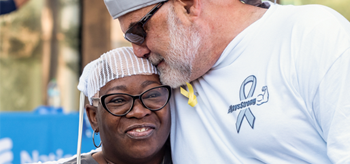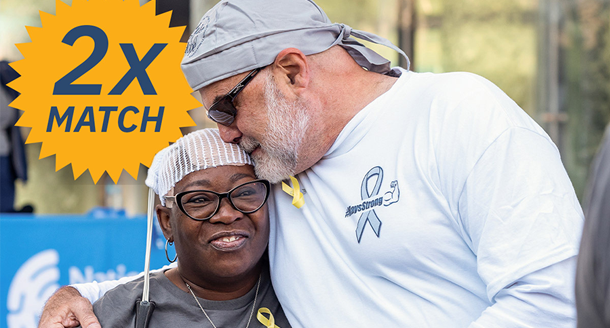If you want to explore new treatments that have not yet been approved by the FDA, there are a few options.
Clinical Trials
First, you may be eligible for a clinical trial — see more information about clinical trials here. You can also search for brain tumor clinical trials using the NBTS Clinical Trial Finder. Clinical trials not only provide early access to potentially beneficial treatments, but they also advance science and are an integral part of the drug development and approval process.
However, many patients do not qualify for clinical trials for a variety of reasons (other conditions, poor overall health, previous therapies, etc.).
Expanded Access
Often, investigational medical products (those not yet approved by regulatory bodies) may be the only option for patients. The FDA has guidelines for how patients may still be able to gain access to investigational medical products outside of a clinical trial called “Expanded Access.”
The FDA approves approximately 99% of Expanded Access requests that it receives. However, there is no guarantee that the patient’s doctor will be able to apply for expanded access from the FDA, as they first need confirmation from the manufacturer that they will provide the drug. It is up to the company on what their policy for expanded access will be, and they may deny requests.
Through the 21st Century Cures Act, pharmaceutical companies must make public and easily accessible the information regarding the company’s policy for evaluating and responding to requests for expanded access (sometimes called “Compassionate Use”). If you do not qualify for a clinical trial, you may want to discuss this option with your doctor.
Off-Label Treatments
Sometimes a therapy that may be effective for the treatment of brain tumors or related effects is already approved for another cancer type or disease. In these cases, your doctor may prescribe the therapy through a process called “off-label” use. As long as there is evidence for the use of the therapy for your brain tumor, and your doctor does not intend to change the labeling or marketing of the therapy, the doctor will not need to get FDA approval for this.
Off-label use can also describe when your doctor gives you a different dose or dosing type (such as a liquid solution instead of a pill) of a medication than what is approved by the FDA. It also describes the use of therapies approved for adults in children.
Side Effects of Experimental Treatments
Though all investigational medical products require the FDA’s Institutional Review Board (IRB) approval for use in humans, it is important to note that unapproved medical products may have serious, unexpected side effects.
You should discuss the possible side effects of any treatment with your doctor and keep your medical team informed of any side effects you experience.




